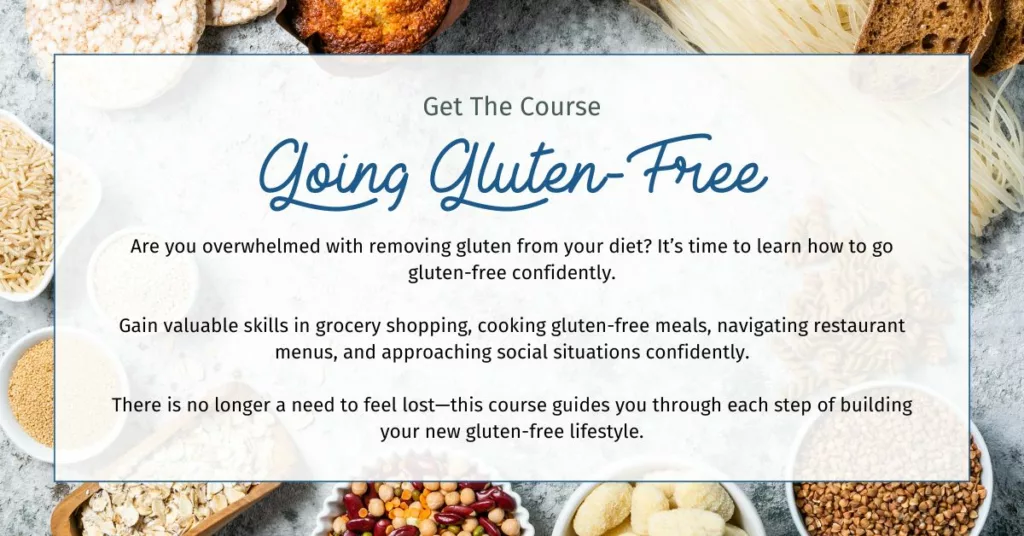
Each year, as the kids head back to school, we’re quickly reminded of how easily germs spread and sickness creeps into the house. Despite our best efforts, we can’t control what happens at school—kids will be kids, and that often means sharing more than just pencils and homework. However, while you can’t stop them from sneezing on each other or touching every surface in sight, you can take proactive steps at home to boost your immune system and reduce the chances of those germs affecting everyone at home.
70% of our immune system is in our gut. Chances are, you are gluten-free due to some form of gut or hormonal issues. Keeping that immune system functioning is a high priority, especially this time of the year and moving into the winter.
Beyond the basics of using hand sanitizers, washing hands regularly, and encouraging good habits, we’ve incorporated three additional steps into our daily routine to give everyone in the house a much-needed immunity boost. These strategies are simple yet effective, helping us approach the school year with a bit more sanity, knowing we’re doing our part to stay healthy and resilient against the inevitable onslaught of germs.
This post contains product affiliate links.
I may receive a small commission if you make a purchase after clicking on one of these links.
Adding in Kid’s Multi-Vitamins
By far, the easiest addition to our routine is adding multivitamins back in. I’ll be the first to admit I’m always forgetful when it comes to reminding kids to take their vitamins. Habit stacking became essential to get us on track, especially at the start of the school year.
What is Habit Stacking?
Habit stacking is a tool that can help kids remember to take their vitamins by adding this new habit to an existing routine they already follow. For example, if your child has a consistent morning routine—such as brushing their teeth or having breakfast—you can stack the habit of taking their multivitamin right after one of these activities. By pairing the new task with a habit they’re already used to, it becomes easier for them to remember and eventually automatic.
Over time, this simple strategy reinforces the routine, making it a natural part of their day without requiring constant reminders… and you know how often kids need those reminders!
What Vitamins Are Best For Kids?
Depending on who you ask, people will complain about how much sugar is in kids’ gummy vitamins. To be honest, that is not as important to me as them actually getting vitamins. Kids are picky, and there will be days when they refuse to take a vitamin. It’s much easier to avoid a fight and get the nutrients in by getting them a sweeter vitamin.
Over the years, we’ve tried various brands, starting with the good old-fashioned Flinstones Vitamins. However, at the time of this blog post, they are not gluten-free. This was an issue for us, so we switched to Olly Gummy Worms.
As my kids have gotten older, we have figured out their specific needs. One of them consistently needed a probiotic, so we switched to Smarty Pants vitamins, which have a little more in them than the Flinstones. My oldest became a huge fan of the Vitamin C Crystals last year; they taste like pop rocks, which makes for little to no convincing.
Work with your kids to find the best option for them. Each vitamin tastes different, and depending on how used to taking vitamins they are, you might want to start somewhere fun and help them grow from there.

Boost Your Immune System With Turmeric
When it comes to morning smoothies, I’m all about loading them with as many extra nutrients as possible. We always have spinach stuffed in there for some extra vitamins, but sometimes I start sneaking in something else…Turmeric.
It’s not something new, but depending on how familiar you are with using spices, it might be new to you. It’s been around forever and turmeric is actually loaded with a lot of vitamins and minerals that can help our gut heal. This keeps our immune systems functioning properly. 1 tbsp of Turmeric contains:
- 26 percent of daily manganese needs
- 16 percent of daily iron
- 5 percent of daily potassium
- 3 percent of daily vitamin C
(Thank you, Medical News Today, for the specifics)
It is also anti-inflammatory and helps your body fight foreign invaders while repairing the damage they’ve done. As we are fighting all kinds of sicknesses, it cannot hurt to fight off foreign invaders.
Here’s the thing about turmeric: You can add it raw to your meals; however, it is incredibly spicy if you do. Adding it in liquid form to smoothies can make it much easier on your tastebuds and help hide the taste from those who aren’t interested in taking it.
Always research to see if it fits your needs, but don’t rule turmeric out!
An Apple a Day Might Boost Your Immune System
Sure, maybe it’s an old wives tale but we are running with whatever extra help we can these days. Increasing fruits and vegetables in your daily routine will help your immune system. Nutrient-dense whole foods play a huge role in supporting the immune system. While it may be tough to find reasonably priced fruits and veggies during the Winter months, look for seasonal produce as well as frozen produce.
Incorporating these nutrient-rich foods into your daily meals doesn’t just boost your immune function; it also provides your body with the energy it needs to stay strong and healthy throughout the school year. Whether it’s adding a handful of spinach to your morning smoothie, tossing some strawberries into your cereal, or including a side of roasted vegetables with dinner, these small changes can add up to a lot of nutrients. Making fruits and vegetables a staple in your family’s diet gives everyone the best chance at staying healthy and resilient against the seasonal germs that inevitably come with the start of school.
Don’t Skip on Vitamin D
As winter sets in and the days grow shorter, our exposure to natural sunlight decreases significantly, which can directly impact our overall health. One of the most common issues during this time of year is a deficiency in Vitamin D, one of the most important nutrients our bodies absorb when our skin is exposed to sunlight. Without enough sunlight, our Vitamin D levels can drop, leading to a weakened immune system and an increased risk of those germs taking over. This makes winter the ideal time to consider adding a Vitamin D supplement to your routine, especially if you’re already deficient during the rest of the year.
While taking a supplement can be important, don’t underestimate the benefits of getting outside, even when the temperatures drop. Braving the cold for some time outdoors can still provide your body with much-needed Vitamin D, helping to boost your immune system naturally. Additionally, spending time outside in fresh air and natural sunlight can have a positive effect on your mental health, reducing feelings of stress and improving your overall mood. It’s a win-win for both your physical and emotional well-being.
By prioritizing Vitamin D, you can help ensure that your immune system stays strong as your kids head back to school, giving your family a better chance of staying healthy all winter.
Surprising Ways to Boost Your Immune System
Stay Hydrated
Believe it or not, staying hydrated will keep your immune system in a good place. Dehydration can negatively impact your immune system, so it’s crucial to consume an adequate amount of water.
Here’s how to figure out how much water you should drink in a day
- Write down an estimate of your body weight
- Divide that number in half.
That number is the ounces of water you should aim to drink one on day, at a minimum. However, something to keep in mind is that drinks like coffee can often dehydrate us. That means, for every cup of coffee you drink, you should consider adding in some additional water to your day.
Also, keep in mind, exercise will also dehydrate you. You may need to adjust the amount of water you drink based on your activity level. If you’re more active, such as engaging in regular exercise or spending time outdoors, your body will require more water to stay hydrated. Similarly, if you live in a hot or dry environment, you’ll need to drink more to offset the sweating.
By paying attention to your body’s hydration needs and adjusting your water intake accordingly, you can support your immune system and keep it functioning at its best, helping your family stay healthy as the school year unfolds.
Reduce Sugar and Processed Foods
While convenient and often delicious, processed foods can harm your immune system, especially when consumed regularly. These foods are typically high in unhealthy fats, sugars, and artificial additives, which can lead to chronic inflammation in the body. Inflammation is the immune system’s natural response to something the gut doesn’t agree with, but when it becomes chronic due to a poor diet, it can weaken the immune system over time. This weakening makes the body more susceptible to the germs as kids head back to school and bring them home.
Not to mention, processed foods often lack essential nutrients that are so important for maintaining a strong immune system. Vitamins, minerals, and antioxidants found in whole foods are essential for supporting immune function, but these nutrients are often stripped away during the processing of foods. A diet high in processed foods can leave your body deficient in these key nutrients, reducing your immune system’s ability to fight off germs. This is especially problematic for children, who need a nutrient-rich diet to support their growth and immune health as they navigate the school environment.
To help keep your family’s immune systems strong during the school year, it’s important to minimize the consumption of processed foods and focus on a diet rich in whole, nutrient-dense foods that support gut health and overall well-being.
If you’re ready to build a gluten-free diet that is high in nutrients, good for your gut, and perfect for the whole family… sign up for Going Gluten-Free. By the end of this course, you will have the confidence to live a gluten-free life and the energy to handle back-to-school with kids and all of their germs.
ABOUT ME

Hey There, I’m Kristin, a gluten-free nutrition coach helping gluten-free families adjust to their new lifestyle.




